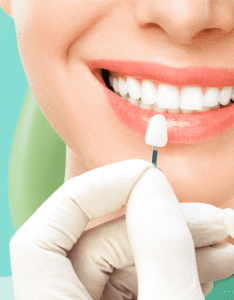Most people know that dental care is very important, but few realize exactly how important dental health is in relation to overall health and general well being. It can be easy to forget about the importance of dental health until a painful issue arises. Practicing good dental habits can reduce the chances of ailments from occurring in the first place! Add to that the fact that good oral health and regular dental checks ups can help to improve one’s overall condition, and it’s easy to see why going to the dentist is so important.
Dentistry includes much more than teeth whitening and cleaning! It’s also a way to assess your health overall, as many conditions can manifest through dental problems such as bleeding gums, dry mouth, and nerve pain. Dentistry can help to get to the “root” cause of these symptoms and prevent chronic disease from worsening.
Despite the importance of dentistry, myths about dental health still exist. Although seemingly harmless, myths about dentistry and oral health can be quite damaging. Knowing what’s fact and what’s fiction when it comes to dentistry can help you protect both your dental and general health.
Here are a few common dental myths debunked.
Hard bristle toothbrushes are more effective
Although they may feel sturdier, hard bristle toothbrushes aren’t necessarily better at removing plaque and build up than their softer counterparts. In some cases they may even do more harm than good by causing irritation to the gum line due to over zealous brushing. Proper brushing technique and frequency is far more important to maintaining oral health than bristle hardness. Most people – 75% – don’t replace their toothbrush as often as they should, so be sure to replace yours with the appropriate bristle hardness!
You aren’t brushing well if you have bad breath
Bad breath isn’t always the result of poor oral hygiene. Sometimes bad breath can occur no matter how well or often you brush and floss. Pungent foods such as garlic and onions can cause bad breath, in addition to certain medical conditions such as post nasal drip, acute illnesses, dry mouth, and diseases like diabetes. If you experiencing frequent or long lasting bad breath despite good dental habits, another underlying cause is likely the culprit.
Avoid brushing if you have bleeding gums
It seems like brushing is bad for bleeding gums but in reality, it’s just what the dentist ordered! While rough brushing can irritate already sensitive gums, gentle cleansing can help to remove irritants such as food particles, debris, and harmful bacteria. Bleeding gums are typically the result of plague build up, and removing this plaque through regular brushing and other good oral habits can dramatically reduce gum bleeding over time.





